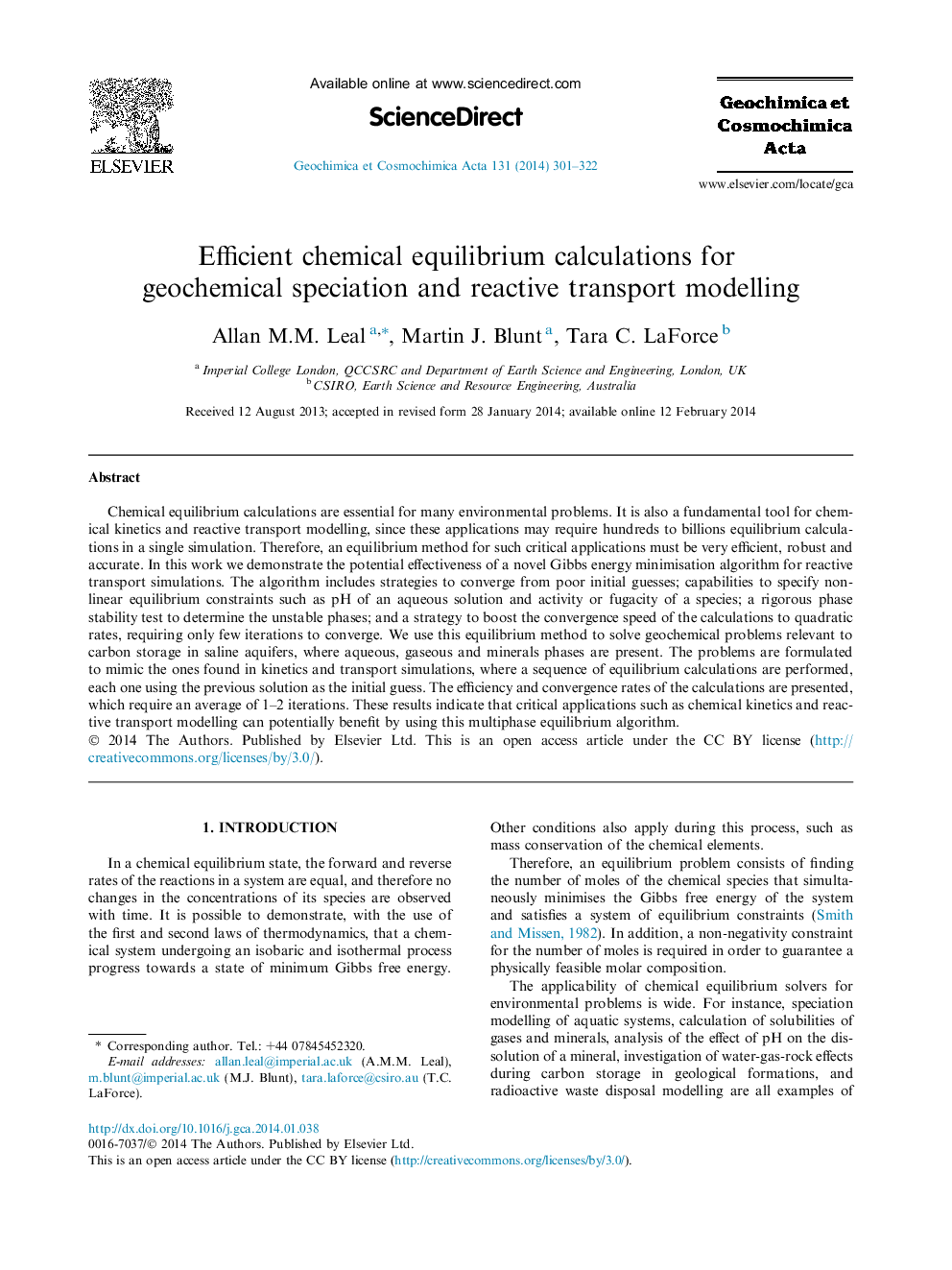| Article ID | Journal | Published Year | Pages | File Type |
|---|---|---|---|---|
| 6438642 | Geochimica et Cosmochimica Acta | 2014 | 22 Pages |
Abstract
Chemical equilibrium calculations are essential for many environmental problems. It is also a fundamental tool for chemical kinetics and reactive transport modelling, since these applications may require hundreds to billions equilibrium calculations in a single simulation. Therefore, an equilibrium method for such critical applications must be very efficient, robust and accurate. In this work we demonstrate the potential effectiveness of a novel Gibbs energy minimisation algorithm for reactive transport simulations. The algorithm includes strategies to converge from poor initial guesses; capabilities to specify non-linear equilibrium constraints such as pH of an aqueous solution and activity or fugacity of a species; a rigorous phase stability test to determine the unstable phases; and a strategy to boost the convergence speed of the calculations to quadratic rates, requiring only few iterations to converge. We use this equilibrium method to solve geochemical problems relevant to carbon storage in saline aquifers, where aqueous, gaseous and minerals phases are present. The problems are formulated to mimic the ones found in kinetics and transport simulations, where a sequence of equilibrium calculations are performed, each one using the previous solution as the initial guess. The efficiency and convergence rates of the calculations are presented, which require an average of 1-2 iterations. These results indicate that critical applications such as chemical kinetics and reactive transport modelling can potentially benefit by using this multiphase equilibrium algorithm.
Related Topics
Physical Sciences and Engineering
Earth and Planetary Sciences
Geochemistry and Petrology
Authors
Allan M.M. Leal, Martin J. Blunt, Tara C. LaForce,
